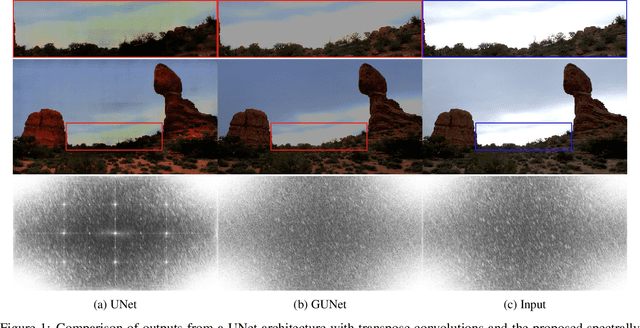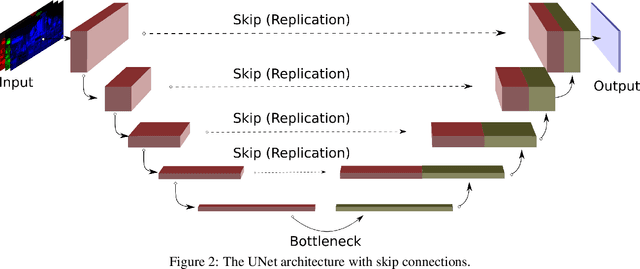Spectrally Consistent UNet for High Fidelity Image Transformations
Paper and Code
Apr 22, 2020



Convolutional Neural Networks (CNNs) are the current de-facto approach used for many imaging tasks due to their high learning capacity as well as their architectural qualities. The ubiquitous UNet architecture provides an efficient and multi-scale solution that combines local and global information. Despite the success of UNet architectures, the use of upsampling layers can cause checkerboard artefacts or blurring. In this work, a method for assessing the structural biases of UNets and the effects these have on the outputs is presented, characterising their impact in the Fourier domain. A new upsampling module is then proposed, based on a novel generalisation of the Guided Image Filter, that provides spectrally consistent outputs when used in a UNet architecture, forming the Guided UNet (GUNet). The GUNet architecture is evaluated quantitatively and qualitatively in an example application of dynamic range expansion for high dynamic range imaging. The proposed method provides higher fidelity results, while executing faster and consuming less memory than other dedicated architectures that avoid upsampling.
 Add to Chrome
Add to Chrome Add to Firefox
Add to Firefox Add to Edge
Add to Edge